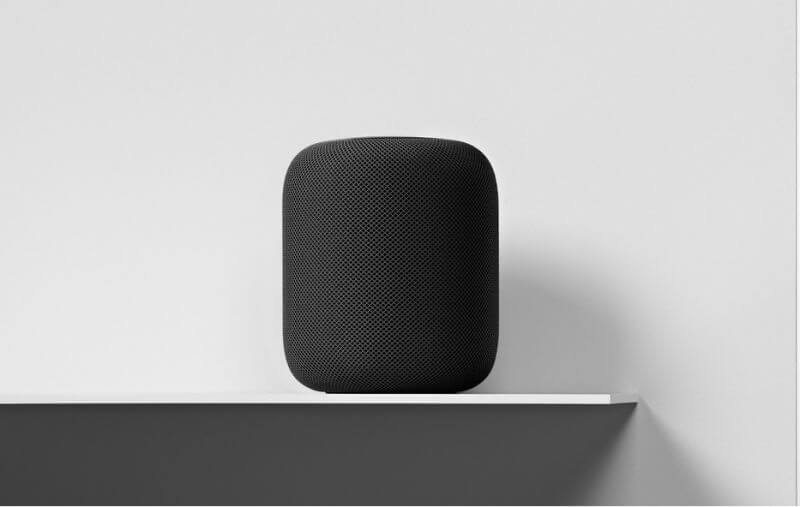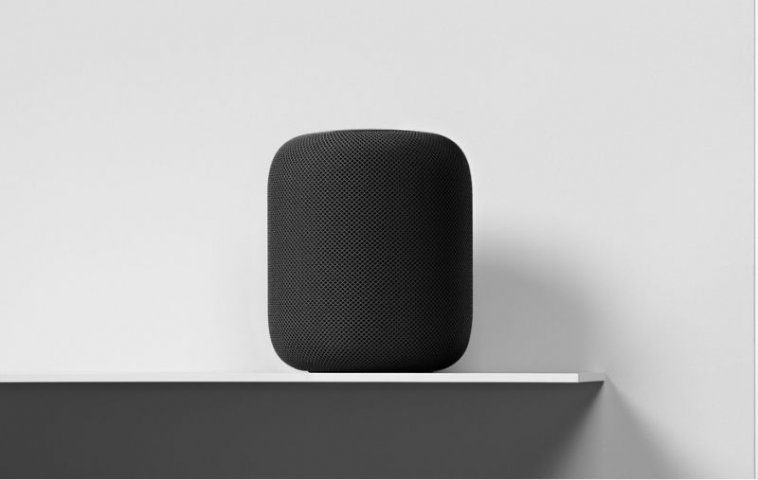
There was a time when buying a speaker just meant grabbing a boombox off the shelf of the nearest Radio Shack and rocking out in your room until your parents told you to stop blasting Kenny G, because the neighbors were starting to ask questions.
Today, if you’re buying a speaker, chances are it’ll also double as a smart assistant. And the standouts in this new age of smart speakers also happen to come from the biggest names in Silicon Valley. I’m talking, of course, about Apple’s (AAPL) Siri-powered HomePod, Google’s (GOOG, GOOGL) Assistant-powered Home and Amazon’s (AMZN) Alexa-powered Echo.
The HomePod is easily the best sounding of the group, but I wanted to know how smart they are. So I asked each one seven basic questions ranging from the weather conditions in my area to why my cats meow, and gave them three commands to find out which should apply for a Mensa membership, and which needs to go back to school.

I also added in how many devices each speaker works with and whether you can use the smartphone of your choice with them.
First: the intelligence test!
The intelligence test

Below are the seven questions and three commands I presented and my findings.
- What’s the weather like?
This is the most commonly asked question for smart speakers, so it makes sense that each device was able to provide the weather conditions for New York. Apple HomePod, however, also tells you the source of its weather report, The Weather Channel, which feels unnecessary. - What’s on my calendar?
Want to check what appointments you’ve got coming up today? Well, if you’ve got the HomePod, you’re out of luck. Apple’s Siri replies with a negative. For whatever reason, the smart assistant can’t access your appointments, so you’ll have to manually check on your phone. Google Home and Amazon Echo can both check your calendar and add appointments. - How long will it take to get to work/ home?
Running behind in the morning and want to know if you’ll get to the office on time? Well, if you ask your HomePod, Siri will give you an estimate for your commute via car, but not by mass transit. The Echo will also give you an estimate via your car, but you have to specifically ask, “What does my commute look like?,” instead of asking something like “How long will it take to get to work?” It also won’t give you mass transit travel time estimates. Google Home will give you both driving and mass transit options. - Can you get me an Uber?
Heading out to the bar with friends and plan to have a few drinks? You can try to ask Apple HomePod to call you an Uber, but unlike its counterpart, the iPhone, Siri on the HomePod can’t call you a car. Both Google Home and Amazon Echo can get you an Uber and to the bar with ease. - Why do cats meow?
This might not be a common question, but it’s something I’ve wanted to know since I got my two cats. The HomePod, however, left my fluffy friends and I in the dark. The Echo gave me a detailed explanation on the topic, while Google Home gave me an even more detailed answer and cited the source it pulled the information from. Unlike the weather question, for which HomePod provides its source, it makes sense for Google Home to provide you with a source so you can do more research on your own. - Where is my phone?
Think you’ve lost your phone between your couch cushions, but still can’t find it? You can ask your HomePod, but don’t expect Siri to help you find your precious handset. The Echo’s Alexa will tell you to download an app to find your device and walk you through the setup process. Google, meanwhile, will call your iPhone or ring your Android phone. - How is the stock market?
Say you’re doing the dishes, but still want to check how your stocks performed for the day. The HomePod’s Siri tells you exactly how the Dow Jones Industrial Average, S&P 500 and Nasdaq performed by points and percentage, while the Echo’s Alexa tells you how the DJI, Nasdaq and S&P performed by points and percentage. Google Home, meanwhile, provides the DJI, the NYSE Composite, and S&P 500. Strangely, the Google Home told me the S&P was down the day I tested it, when the index was actually up, but the closing numbers were correct. - Play music on Spotify.
Want to pump up the jam on Spotify with your HomePod? Then I’ve got bad news for you, because Apple’s speaker can only stream music from Apple Music. The Echo and Home can stream from multiple music sources including Spotify. - Add dog food to my shopping list.
Need to get some food for Fido? You can ask HomePod, Echo and Home to add some savory treats for your doggo to your smartphone’s shopping list. It’s quick, easy and painless all around. - Set an alarm.
Have to get up for work in the morning, but already in your comfy bed? No worries, the HomePod, Echo and Home all let you set your alarm using nothing but your voice. So you can stay safe and warm under your blankets.
Winner:
Amazon Echo and Google Home tie for intelligence, addressing all of the questions asked and commands given. Apple HomePod, however, was only able to complete half of the intelligence test.
Compatibility

If you’re buying a smart home speaker, you likely want it to work with your existing smart home products. I’m talking about your smart thermostat, smart coffee maker, smart… blender? Whatever it is, you want your new speaker to work with it. So how do these three stack up?
Amazon Echo is compatible with the most devices on the market. The e-commerce giant says its Alexa smart assistant can communicate with 4,000 different smart gadgets in your home. Google says the Home’s Google Assistant can talk to 1,500 devices, a significantly smaller number than Amazon’s offering. Then there’s the HomePod and its Siri, which works with “hundreds” of accessories.
As far as your own smartphone, the Echo and Home work with both Android and iOS devices. The HomePod, however, will only work with iOS devices. So if you’re an Android owner, the HomePod isn’t for you.
Winner:
Amazon Echo is compatible with Android and iOS, and can communicate with the most smart home devices. That means it takes the top spot in compatibility.
The smartest one in the room
Amazon Echo not only completed all of the commands and answered all of my questions, it also offers the greatest compatibility with other smart home devices. Of the three big smart speakers on the market, Amazon Echo clearly has the biggest brains. Google Home comes in a close second. Sure, it matched Echo in the intelligence test, but it just isn’t compatible with as many devices to beat out Amazon’s offering.
Then there’s the Apple HomePod, which is, well… let’s just say it’s not too bright. The speaker was only able to successfully complete half of the intelligence test and supports the fewest number of smart home devices. So if you’re looking for the smartest speaker around, go for the Amazon Echo.
More from Dan:
Email Daniel Howley at dhowley@yahoo-inc.com; follow him on Twitter at @DanielHowley.
Follow Yahoo Finance on Facebook, Twitter, Instagram, and LinkedIn
Website: LINK


